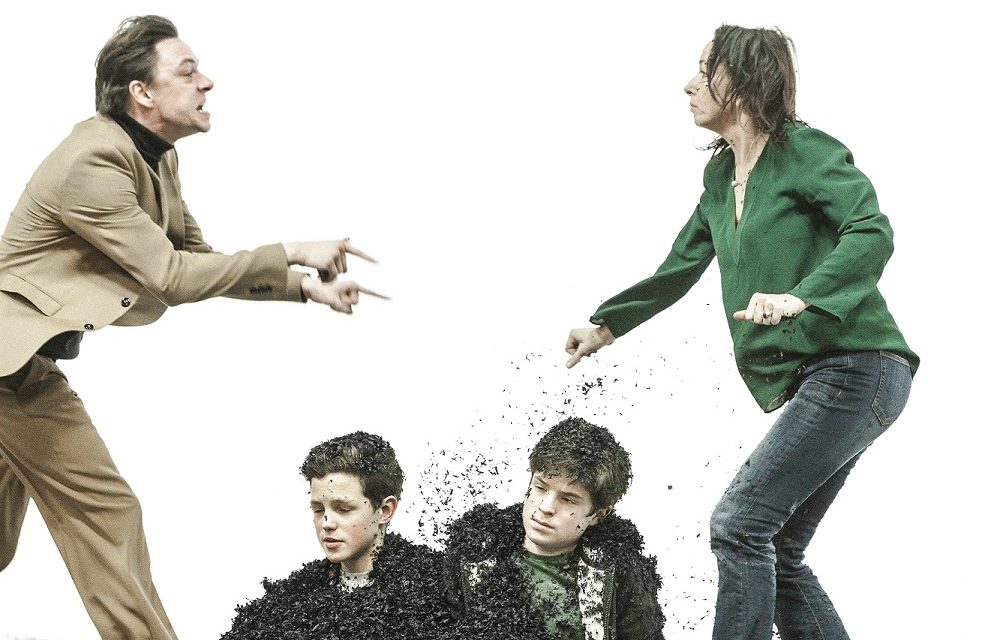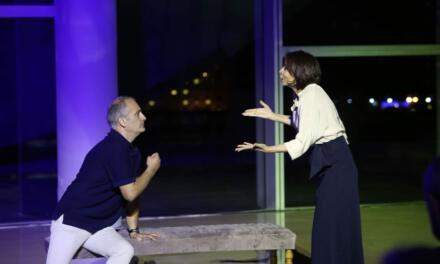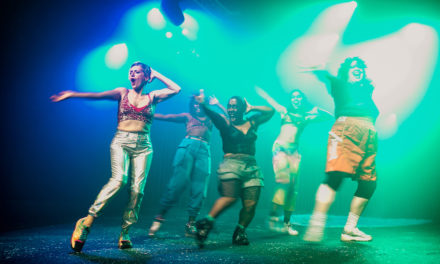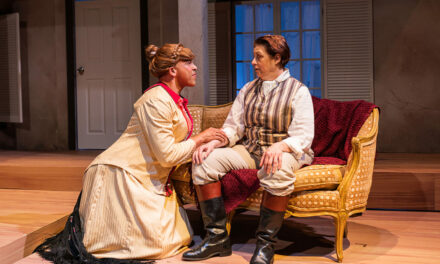Simon Stone is a stage director who began working in Australia and is currently working in Europe. His successful production of Yerma, by Federico García Lorca, was selected by The New York Times theatre critics as one of the best plays in New York in 2018.
Medea, a Simon Stone collaboration with the prestigious Ivo Van Hove International Theater Amsterdam in 2014, opened in Madrid in November 2018. The play was included in the 36th Fall Festival of Spain’s capital, and tickets sold out quickly. Everybody wanted to see it, from theatre professionals to theatergoers.
Was this expectation justified? Most people think it was. Note that the way that Stone has re-written Medea is clever. He has converted the classical Greek play into a play with plausible contemporary characters. Medea becomes a mother who has serious mental problems resulting from her husband wanting a divorce because he is involved with a young girl. Because of her mental problems, Medea has lost custody of her two sons and her job as a reputed scientist in a renowned pharmaceuticals laboratory. The play shows what happens when she returns from the asylum to her city and meets again with her sons, her ex-husband and his girlfriend.
The homecoming happens on a white stage. There are few design elements used, most of them related to new technologies such as cameras and mobile phones. Sometimes the images captured by those devices are projected as close-ups on the foreground. Nothing is as important as the actors’ performances. Director’s notes indicate that the text was written during rehearsals. The direction is completely justified. The actors are extremely competent, and the main actress, Marieke Heebink, is superb. She has already won a Theo d´Or, a prestigious Dutch award, for her portrayal.

The cast of Simon Stone’s Medea. Photo credit: Sanne Peper
The violence of the classical Medea is present in the current version too. It’s presented as many domestic or family violence stories are on TV or in the newspapers nowadays: these unbelievable cases that are analyzed constantly in TV shows. In my opinion, critics and spectators love the work of Simon Stone because of the way he translates the classics into our everyday lives. He creates understandable and moving productions. He does this so well that people who usually aren’t attracted to classical texts are affected by his plays. I don’t know whether audiences are as moved as in ancient times, or whether they experience a catharsis, as, for example, they do with Mount Olympus, by Jan Fabré. It doesn’t matter. The audience seemed pleased with the play. They were completely silent during the performance and applauded for a long time at the end of the show.
The critics have also been pleased. They have written positive reviews, and the show has been highly rated. However, I miss the moral debate that this play has always provoked for me. Is it fair to kill your sons as an act of revenge against your partner? Are Medea’s actions acceptable nowadays? If they are not, why are people so pleased with this story instead of repulsed by it?
Simon Stone doesn’t answer these questions with his approach. He doesn’t even raise them. From my point of view, he has created a translation for our times superficially, and he has avoided the current and deep debates about love, revenge, and violence in the play – violence that is commonly seen against women. Often menaced, beaten, or killed when they decide to end a love relationship, in our society women often play the role of Medea’s husband. The classics are generally forgiven because they are more than a good story: they are stories that show what happens to human beings at any given time. Stone’s brilliant production does not allow that to be understood.
Edited by Carrie Klewin Lawrence
Antonio Hernández is a Spanish theatre critic who graduated with honors in creative writing from Escuela Contemporánea de Humanidades (ECH), where he was part of a think tank for five years that focused on contemporary issues. Antonio contributes regularly to media such as HuffPost (Spanish edition), Actores&Actrices, and SulPonticello, and Tragycom, a Spanish theatre ranking website. He is currently writing a series of interviews with women who work in theatre for Woman’s Soul magazine. Antonio has completed journalism courses in El País School and Escuela de Letras de Madrid and various theatre courses in many of the renowned theatres of Madrid.
This post was written by the author in their personal capacity.The opinions expressed in this article are the author’s own and do not reflect the view of The Theatre Times, their staff or collaborators.
This post was written by Antonio Hernández.
The views expressed here belong to the author and do not necessarily reflect our views and opinions.


















